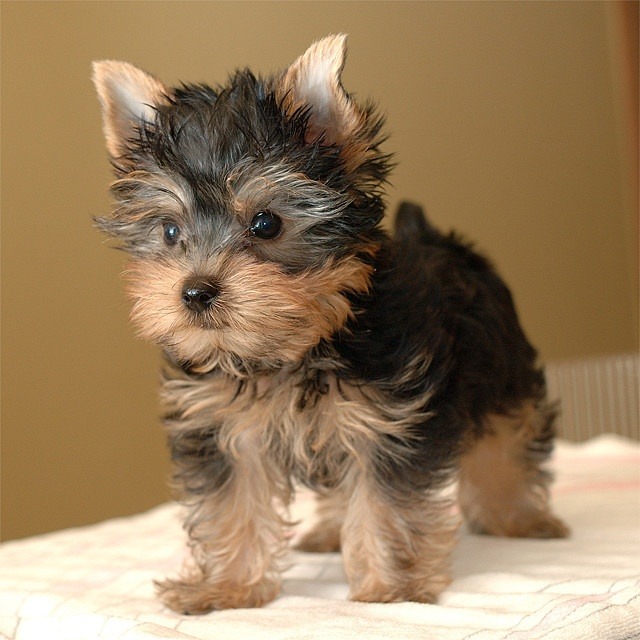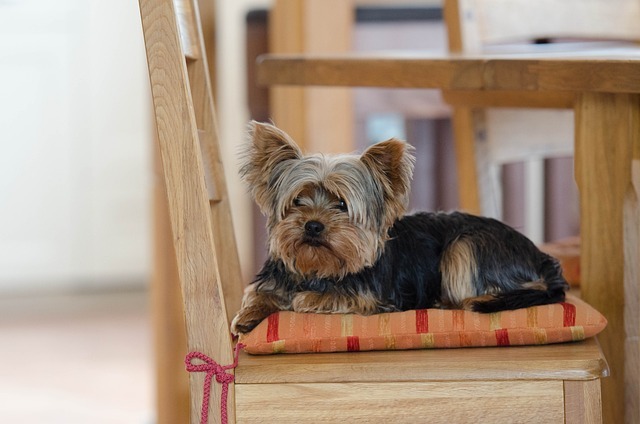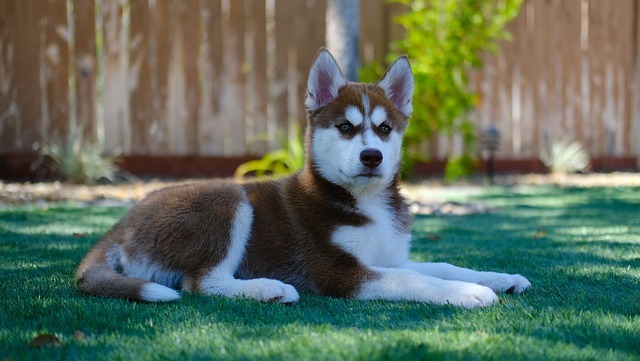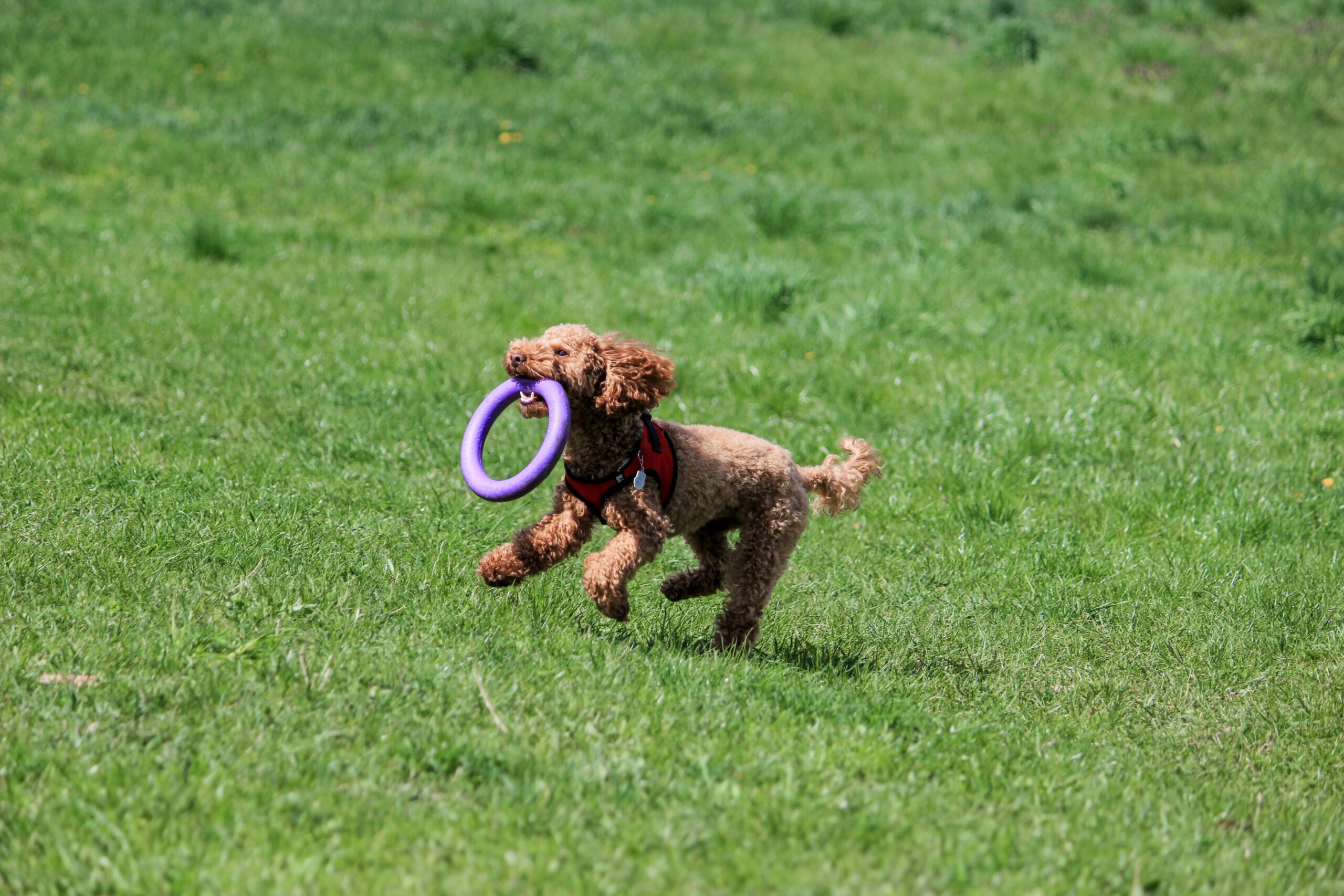Discover the characteristics of charming and playful Yorkshire Terrier dogs such as how to take care of them, grooming tips, and why they make wonderful pets.
Table of Contents
- Statistics
- Yorkshire Terrier
- Quick Facts
- Yorkshire Terrier Adaptability
- Yorkshire Terrier Characteristics
- Yorkshire Terrier History
- Yorkshire Terrier Temperament
- Yorkshire Terrier Training Needs
- Yorkshire Terrier Grooming Needs
- Yorkshire Terrier Diet and Nutrition
- Yorkshire Terrier Common Health Issues
- How can I prevent hypoglycemia in my Yorkie?
- Summary
- FAQs
Statistics
| DOG BREED GROUP | Companion Dogs |
| HEIGHT | 8 to 9 inches |
| WEIGHT | 4 to 6 pounds |
| LIFE SPAN | 12 to 15 years |
Yorkshire Terrier
Often called Yorkies by those who love them, Yorkshire Terriers are among the most beloved of all little dog breeds worldwide. Their tiny bodies always manage to carry so much personality that complements their delightful charm with silky coats. But what is it about them that makes us think they’re unique?
In the 19th century, a bunch of little dogs were first raised to hunt rats in factories in England. However, it did not take long for rich people in the Victorian era to fall in love with Yorkies. The texture of their hair is so smooth and goes all the way down their feet. Furthermore, they represent everything beautiful about them among other breeds today.
Yorkies have a heart of a lion in a tiny body. They are bold animals -some might call them brave even for so small size. Curious by nature, they do not shy away from wandering in their environment or introducing themselves to strangers. They also have more sense than other breeds when they make bonds with human beings, which shows itself through their extreme love and faithfulness.
One reason why Yorkshire Terrier is so likable is because it has luxurious coats like those of humans. Its sleek fine hair needs frequent brushing so no knots form on it as well as no matting; some people however claim that when you groom your dog, it helps you get closer to him/her which cannot happen otherwise.
Yorkshire Terrier delightfully affectionate toy dog breed that has a rich history. Let us now find out more about these amazing creatures people have come to love.
Quick Facts
- Origin: England
- Coat: Long, silky coat that comes in blue and tan colors.
- Temperament: affectionate and often aggressive. Can be quite confident despite their small size.
- Exercise Needs: daily walks and indoor play are usually enough for these dogs.
- Training: Intelligent and trainable, but can be steadfast.
- Grooming: require high maintenance due to their long coat, regular brushing and grooming is essential.
- Health: Prone to dental issues, patellar luxation, and eye problems. Regular check-ups and dental care is crucial.
Yorkshire Terrier Adaptability

Yorkshire terriers are known for their remarkable adaptability. These small dogs can survive in busy cities or quiet countryside because they are tiny but spirited creatures. They can comfortably occupy very little space without having big yards to run about. This makes them perfect for city inhabitants who live in apartments or homes without big yards.
Despite having a small size, Yorkies always have a strong character and want to explore new places around them. Every Yorkie is very good at adjusting to new environments. They are sociable animals that love people’s company very much. This breed also displays loyalty and affection because individuals have close relationships with their trainers.
Yorkies are intelligent and fast learners. They react well to positive reinforcement and consistent routines. They require security and affection so that they can fit into another environment easily.
Another thing is that if properly trained as puppies then Yorkies would co-habitat well with kids and other animals such as cats. Their playful and loving nature makes them great companions for families.
Yorkshire Terrier Characteristics
With their mighty spirit and playful mannerisms, the Yorkies are popular for boldness and liveliness in behavior, thus making them good alert watchdogs as well as jolly friends.
- Coat: Regular grooming is necessary to avoid tangling of the stunning silky coat often mentioned as human hair on Yorkshire Terriers. No wonder they look more elegant because their hypoallergenic blue and tan coat colors.
- Size: They are typically 7-8 inches tall at the shoulder and weigh 4-7 pounds on average. However, in spite of this small physical size they have confident and lively behavior that hides their mini size.
- Grooming: Yorkshire terriers have a long, luxurious coat that needs grooming frequently to make it look beautiful. Most owners prefer to have their pets professionally groomed after every couple of weeks. Regular baths, ear cleaning, nail trimming, and dental care are also necessary.
- Personality: Despite their tininess, they are famous for their very big personalities as they are forever ready to participate in anything around them. Consequently, they develop a strong affectionate attachment to their owners.
- Intelligence: Yorkshire terriers are smart dogs who can learn quickly and therefore are relatively easy to teach. They react well when subjected to positive reinforcement and also enjoy psychological games.
- Energy Level: Yorkshire Terriers need regular physical activity. This helps in keeping them happy and healthy. For them, it is all about fast walks and games.They are small but with huge energy level this making them able to move for longer distances.
- Longevity: Yorkshire Terriers are popular for their long lives, usually ranging from 12 to 15 years, in some cases going beyond these years with good care.
- Health Considerations: Because of generally good health Yorkies are prone to some illnesses. The common health issues includes dental problems, luxating patellas (dislocated kneecaps), tracheal collapse, and eye issues like cataracts. Regular veterinary checkups and balanced diet are essential to manage these conditions.
- Adaptability: Yorkshire Terriers are dogs that fit in different environments. For example, they may do fine with music and large yards. Situations under which this breed can adapt easily include single lifestyle, for couples, and married people who have children.
- Temperament: Yorkshire terrier’s temperament is sort of an interesting blend of closeness and independence. They like people and always want to be near them.
On the whole, Yorkies are pretty charming and lively, and also affectionate companions. If they are properly cared for such as grooming or keeping an eye on health conditions they could be nice pets for anyone who wants one in their home.
Yorkshire Terrier History
The Yorkshire Terrier has been in existence since the mid-19th century, a period of the Industrial Revolution. It was brought over to Yorkshire by Scottish workers who came with small terriers like Clydesdale Terrier which has since passed into Paisley Terrier among others. These canines were groomed for catching rats and other little rodents found in textile industries and mines for coal.
One of the results of cross-breeding various terrier breeds is the Yorkshire Terrier that exists today. These intermixes aimed at producing a small but energetic canine with having soft silky coat including Clydesdale Terrier, Paisley Terrier, Skye Terrier, and probably the Maltese.
A key name in the history of this breed is Mary Ann Foster who was instrumental in perfecting and making the Yorkie popular. Her dog Huddersfield Ben born 1865 is generally considered the patriarch of this breed.
It was in 1886 when the British Kennel Club first acknowledged the Yorkshire Terrier as its category. Rapidly the breed gained fame not only within the country but across regions. After its recognition by AKC in 1885, this breed has been embraced by many dog lovers in America.
Yorkshire Terrier Temperament

Yorkies are highly energetic tinny dog breed. Their small size does not prevent them from liking to play as much as possible. Activities such as fetching, running or interactive games are very enjoyable to them. Their playful character makes the dogs a good company for both kids and grown-ups whose activeness matches theirs.
Yorkshire Terriers create strong relationships with their owners and Loyalty levels in them are quite high. Greatly affectionate, these breeds form a perfect company for any individual searching for a genuine friend.
Surprisingly fearless sometimes seeming bigger than they are. This trait can be useful in making them effective guards because they will always inform the owner if there is anything suspicious or unfamiliar happening.
Yorkies possess great analytical abilities. They are fast learners and can easily trained with consistency and positive reinforcement. Intelligence in these small dogs may generate a bit of resistance, hence patience and a firm hand are necessary to control them.
Yorkshire Terriers are people-loving but also have a streak of independence. They can keep themselves busy and are quite self-sufficient for a dog breed. Thus this makes it important that we learn how well to help them blend their desires for freedom alongside their sociability to keep such pets healthy.
Yorkshire Terriers may get a bit overprotective of their home and family. Sometimes, they’ll show territorial aggression as they regard intruders and different animals with suspicion. If these puppies are very young, they should be properly brought up to be less overly protective in the future which will help them get along with other people well.
Yorkshire Terrier Training Needs
Teaching a Yorkshire terrier also famously recognized as Yorkie is indeed satisfying but it needs consistency. Yorkies being small-sized dogs have distinctive characteristics that make them smart, curious, or may be a bit stubborn occasionally. Here we elaborate guideline for effectively training your Yorkies.
Before you start training your dog, you need to know more about it. Yorkshire Terrier is a small dog breed that belongs mostly to the English. Sometimes they may be difficult to train due to being too much on their own and not following instructions properly.
Be consistent in your language and signals. Employing mixed messages might only confused your Yorkshire terrier hindering its training development. Employ positive reinforces by giving your dog treats, praise or time to play when it does something good.
Be patient with him/her, teaching them takes patience because dogs learn over a period of time. Yorkies’ concentration levels are low so ensure that these gatherings last only for 5-10 minutes.
Potty and Crate Training
The first thing you should do is have a regular feeding schedule so that you can predict when Fido needs to go. Take them each time to the same spot. When you are ready to take Fido out, always say the same phrase such as, “Go potty.” Once they have relieved themselves, give them an immediate reward. In this way, they will associate relieving themselves with something good happening afterward.
Encourage the Yorkshire Terrier dog by placing treats inside the crate to come in. Always give short periods at first then gradually increase the time the dog stays inside.
One of the normal behavioral issues among dogs is barking. Identifying the triggers behind this barking could be the first step in resolving this situation. The second common prohibitive habit is chewing done out of boredom by the dogs. Make sure it encounters a variety of environments, people, and animals. They should all be suggestive experiences. Take Him to classes. Try finding a place for puppy socialization.
Yorkshire Terrier Grooming Needs
Your Yorkie will need regular thorough grooming. Grooming is not just about aesthetics it is about the overall health and well-being of your four-legged pal. Find out about about grooming requirements for Yorkshire Terriers.
Brushing
Yorkies have a soft, silky coat that can become easily tangled or matted without regular grooming. It is advised to brush them daily to prevent them from developing this kind of knots or tangles. Use a soft bristle brush or slicker brush and gently comb. The reason they should be brushed frequently is because it helps in enabling even distribution of natural oils all over their fur hence maintaining its health as well as making it shiny.
Bathing
Dogs should be bath every two to four weeks. Bath your dog using quality shampoo that is gentle on its skin and fur. Avoid washing too much because this strips the natural oils from their fur causing itchy dryness.
Hair and Nail Trimming
Regular trimming is essential to maintain a proper length and to ensure that your Yorkie remains tidy. Also, the hair around the eyes, ears, and paws should be cut frequently to avoid irritation or infection.
Yorkshire Terriers’ nails grow very fast hence it is important to trim them regularly lest they become too long thus causing some kind of pain and affecting their walk. Trim your Yorkie’s nails every 2-4 weeks or when necessary. In case you don’t know how to go about it, you can ask your veterinarian or groomer for a demonstration.
Ear Cleaning
Because of their small, upright ears, Yorkies often have ear infections. Clean ears once a week using a vet-recommended ear cleaner to remove wax and refuse. if you notice infection symptoms like redness, puffiness, or fishy smell seek medical help without hesitation.
Yorkshire Terrier Dental Care
Dental care is equally important to maintain good oral hygiene in Yorkies because they tend to develop dental problems easily. Brush their teeth at least thrice per week with a specifically designed toothbrush and toothpaste for dogs. Meet your vet regularly for dental check-ups to prevent the formation of plaque as well as any other teeth-related concerns.
It takes effort and regular care to groom a Yorkshire Terrier well, but it pays off in the end. The dog will not only look nice but also become more comfortable and healthier if properly groomed. Your little Yorkie will appear great if you start grooming them early enough and keep up the practice.
Yorkshire Terrier Diet and Nutrition

A balanced diet Plays a critical role in maintaining their health, energy levels, and longevity. As a pet owner, you must understand your Yorkie’s specific dietary requirements to keep them happy and healthy.
Yorkies may be small, but they have high metabolic rates because their stomach size is also small. Therefore, it is better to give them many small meals compared to one or two large meals. Normally you are advised to feed a puppy of this breed between three and four times in day, for mature Yorkies, twice or thrice in twenty-four hours is enough.
The controlled portion is vital to avoid ending up with fat Yorkies since it is common among small sizes. The amount of food that will satisfy your Yorkie vary depending on how old the animal is as well as its weight and the things it does daily. A qualified vet recommended the following diet chart.
Puppies (up to 6 months): ¼ to ½ cup of food per day, divided into 3-4 meals.
Adults (1-8 years): ½ to ¾ cup of food per day, divided into 2-3 meals.
Seniors (8+ years): ¼ to ½ cup of food per day, divided into 2 meals.
You should give your Yorkie treats in moderation and they should not exceed 10% of the caloric intake that he eats every day. So, go for those treats which are healthy at low calories including little bits of fruits like apple slices and blueberries, or vegetables such as carrots and green beans.
Remember that there are also dog-specific biscuits that can be used as an alternative for this kind of treat here. Please don’t give them human foods which are poisonous to them such as chocolate, grape, onion, and garlic.
Yorkshire Terrier Common Health Issues
Yorkies are small, lovable dogs, and they have a lot of energy although they are also exposed to many health problems. Therefore, prospective or current owners need to know about some of these health challenges to take good care of them before things get out of hand.
Hypoglycemia
Yorkie puppies suffer from hypoglycemia or low blood sugar, which is common in them and also happens in grown dogs that are poor eaters or have a lot of energy. Its signs are drowsiness, bewilderment, jumbled steps, and sometimes fits. For this reason, whenever possible, the pet parent must ensure that their Yorkie eats little bits of food at regular intervals as well as carry along honey which can provide instant sugar relief during emergencies (Medical News Today, n.d.).
Luxating Patella
Luxating patella, or “slipped stifle”, is when the knee cap slips out of position. The leg that it affects may become painful and lame as a result. Surgery sometimes necessary for very serious cases. This condition can be avoided or controlled by managing diet effectively in addition to the use of joint supplements only.
Tracheal Collapse
Tracheal collapse is known to affect Yorkies whereby the trachea becomes weak and collapses partially resulting in breathing problems as well as coughing and honking noise. Weight management is one way through which this condition can be prevented while using harnesses rather than collars to avoid straining their necks. For some with extreme situations, treatment through drug administration or surgical operation might be necessary.
Portosystemic Shunt (PSS)
When a puppy is born with PSS, it means their blood does not go through their liver like it should, therefore creating a lot of poisons which then mix with everything else in their body. This may cause them to be small for their age (which doctors call stunted growth), throw up a lot (vomit), or have loose stools often (diarrhea). Sometimes, these toxins cause seizures (when the brain sends out bad messages) or circles (walking around in circles). This makes it important to find out PSS cases early to treat them well through surgery thereby improving chances of recovery from such a condition.
Legg-Calvé-Perthes Disease
The femoral head degenerates because of avascular necrosis of the hip joint. Predominantly found in puppies with an age range of 5-8 months, hip dysplasia may manifest through clinical signs like pain and lameness. Therapy may incorporate surgical intervention to remove the affected segment of the femur, followed by physiotherapy sessions for rehabilitation purposes.
Eye Problems
Yorkies are often troubled with a variety of eye disorders, such as cataracts, progressive retinal atrophy (PRA), and dry eye (keratoconjunctivitis sicca). This means it is essential for them to have regular vet visits so that these can be detected early enough before they get worse. Depending on what your pup is facing, you might have to administer eye drops or go through surgery if required.
Skin Allergies
Skin allergies are typical in Yorkshire terriers and can be triggered by either food dust, environmental factors, or fleas that are parasites. Symptoms of skin allergies comprise itchiness, redness, as well as hair loss in most cases. Finding out what the allergen is and getting rid of it would serve as a preventative measure. This would therefore result in controlling skin allergies through using medications like antihistamines, special shampoos or even changing one.
Hypothyroidism
Symptoms of weight gain, fatigue, and skin problems are associated with the underproduction of thyroid gland hormones known as hypothyroidism which results in inadequate production of these chemicals by the organ that regulates metabolism.
Heart Disease
Yorkies can develop different heart conditions such as having mitral valve disease (MVD) in which the valve of their heart called a mitral valve fails to shut tightly hence leading to the leakage of blood and subsequent enlargement of the heart. Coughing, fatigue, and breathing difficulty are some symptoms that one might show. This condition can be controlled through regular visits to vets, feeding them on foods that favor healthy functioning of their hearts where necessary administering medicines to them as well.
At last, even though there are many potential illnesses that Yorkshire Terriers may suffer from, they can still be managed quite easily provided one takes good care of them. If you want your Yorkie to have a long happy and active life then be knowledgeable about what can affect it but be prepared for anything because the things you do not know might happen someday.
How can I prevent hypoglycemia in my Yorkie?
Hypoglycemia also called low blood sugar and the owners can prevent this health issue by following these steps:
- Reduce Stressors: small dogs like Yorkshire can easily get affected by stress. This can lead to fluctuations in their blood sugar levels.
- Frequent Meals: Instead of giving your Yorkie big meals, make sure to feed them with small portions at regular intervals within 2 to 4 hours. Feeding your dog routinely is important as it will aid in upholding glucose levels and preventing sudden drops.
- Avoid Overexertion After Eating: After a meal is over, make sure your Yorkie rests and in doing so it will avoid vigorous workouts. If they are exercised too much then they get low on juice and that causes low blood sugar.
- Nutritious Diet: Select dog food with good, well-balanced nutrition. Also, consider grain-free alternatives, for small dogs need to store glucose properly.
Summary
Yorkshire Terriers, known for their adorable personalities and unique appearance, are great to have in any house. They may be small but their character is that of a daredevil hence they are good company and they will entertain you with love.
Proper treatment such as grooming often, good meals, as well as enough physical exercise, will see that they are safe and happy all through. Though they are small in size their love towards people is hardly imaginable rather worthwhile to note that it is always unchanging and the best way they can get attached to individuals.
FAQs
How long do Yorkshire Terriers live?
Yorkshire Terriers generally have a lifespan of about 12 to 15 years, some living longer depending on how well they have been cared for and kept healthy.
Are Yorkshire Terriers good with children?
Yes, Yorkies can behave well around kids, especially if they have been brought up together. However, they should be kept under close observation when young children are around because of their size.
How often should I groom my Yorkshire Terrier?
It is recommended to groom them daily to prevent hair from becoming entangled or matting. What is more, you can maintain their cleanliness by taking them for professional grooming occasionally.
What is the average cost of owning a Yorkshire Terrier?
Depending on various factors, one can spend anywhere from $1,000 to $2,500 in a year on average for owning a Yorkie. This includes grooming, veterinarian care, food, and supplies after the initial purchase or adoption fee has been paid.
Can Yorkshire Terriers be left alone during the day?
Yorkshire Terriers can be left alone for short periods although they need company and may develop feelings of being separated for a long time. There needs to be provision for a secure and comfortable place as well as having something at hand that will keep them busy whenever one is away.



